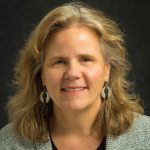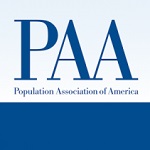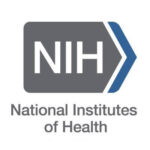Liu and Raftery Publish New Findings about Education and Fertility Trends
|
UW Statistics Doctoral Student Daphne Liu and CSDE Affiliate Adrian Raftery recently published new research in Population and Development Review showing how education may accelerate fertility decline. They examine the relative influence of several different mechanisms including women’s education, children’s school enrollments, contraceptive prevalence, and unmet need. They find that women’s educational attainment is far more influential than children’s school enrollment in accelerating fertility declines. They also find that increasing contraceptive prevalence is more important than decreasing unmet need. They find that women’s educational attainment is far more influential than children’s school enrollment in accelerating fertility declines. They also find that increasing contraceptive prevalence is more important than decreasing unmet need. To read more about the research, please see the article. They recently also published a short research note through N-IUSSP that summarizes those findings and the policy implications. (read more)
|
 |
Fredriksen Goldsen to Headline Leading Lights Speaker Series (04/01/2021)
|
CSDE Affiliate Karen Fredriksen Goldsen will provide a keynote lecture on Science to Impact: Linking Lives to Disrupt the Cycle of Social Isolation in the Midst of COVID-19, as part of the UW School of Social Work’s Leading Lights Speaker Series on April 1, 1:30-4:30pm. To learn more and to register, click here. (read more)
|
 |
Join CSDE Event: Diego Alburez on the Demographic Drivers of Grief and Memory after Genocide in Guatemala (04/20/2021)
|
On April 20, 2021 at 10am, CSDE is co-hosting with several organizations on campus, a presentation by Dr. Diego Alburez of the Max Planck Institute for Demographic Research on the “Demographic Drivers of Grief and Memory after Genocide in Guatemala”. Dr. Alburez is a demographer and a computational scientist who is employing unique data to better understand the demographic causes and consequences of armed conflict. To join the event, click here. (read more)
|
 |
Join PAA Congressional Briefing on ‘Living, Working, Dying: Demographic Insights into COVID-19’ (04/23/2021)
|
PAA members will virtually brief congressional staff on “Living, Working, Dying: Demographic Insights into COVID-19” on April 23 at 12:00pm ET. The COVID-19 pandemic has made clear that factors such as age and pre-existing conditions intersect with socioeconomic and demographic characteristics—such as race-ethnicity, gender, and income—to influence both the onset and severity of the disease, as well as its trajectory. In this briefing, population scientists will share research findings on the disparate impacts of COVID and what additional research and data are needed to understand and address its far-reaching effects. Panelists include Dr. Caitlyn Collins, Dr. Marc A. Garcia, and Dr. Anna Gassman-Pines. Dr. Noreen Goldman will moderate the panel. To register, click here. (read more)
|
 |
MPI and IOM Host Event: A Year of Pandemic – the State of Global Human Mobility (04/08/2021)
A free event on Thursday, April 8 with the Migration Policy Institute will feature the Director General of the IOM and focus on the state of human mobility, as a result of the pandemic. The COVID-19 pandemic fundamentally changed mobility and cross-border movement in 2020, decimating tourism and business travel, severely curtailing labor migration, and dampening all forms of migration, including refugee resettlement. Since the onset of the public health crisis, the International Organization for Migration (IOM) has tracked the hundreds of travel restrictions, border closures, and health-related travel requirements imposed by governments globally. A new IOM-Migration Policy Institute report draws from the IOM database to sketch the state of mobility across world regions in 2020, and the range of mobility-related strategies used to contain and mitigate the spread of the virus. Register for the webinar here. (read more)
*New* NIH Announces FOA for Health Disparities Research Via U01 Mechanism
|
NIH just released two FOAs for Transformative Research to Address Health Disparities and Advance Health Equity. The FOAs seek proposals with unusually innovative research projects, which, if successful, would have a major impact in developing, implementing, or disseminating innovative and effective interventions to prevent, reduce, or eliminate health disparities and advance health equity. No preliminary data are required. Projects must clearly demonstrate, based on the strength of the logic, a compelling potential to produce a major impact in addressing health disparities and inequities. One is for collaborative investigative teams at any university. The other is for teams at Minority Serving Institutions. For more information, see here and here. (read more)
|
 |
|

